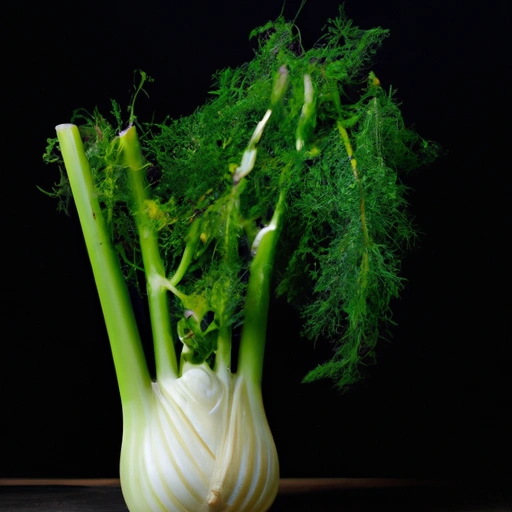Fennel
Description

Fennel is a flowering plant species in the carrot family that is indigenous to the shores of the Mediterranean. It has grown throughout the world and is now found on nearly every continent. Fennel is highly prized for its aromatic and culinary properties. The bulb, foliage, and seeds of the fennel plant are widely used in cooking. In terms of measurement, fennel is typically diced or sliced when used in recipes, with a medium bulb weighing about 7 to 8 ounces (198 to 227 grams). The seeds are measured in both teaspoons and grams; for instance, 1 teaspoon of fennel seeds is approximately 2 grams.
Common uses
Fennel is frequently utilized in salads, soups, stews, and as a garnish due to its crisp texture and distinctive anise-like flavor. Fennel seeds, which are often used in spice blends, add a sweet, licorice flavor to dishes such as sausages, curries, and breads. The fennel bulb can be sautéed, stewed, braised, grilled, or eaten raw. Its fronds can be used as an herb to flavor soups, salads, and other dishes.
Nutritional value
Calories
A medium-sized fennel bulb contains approximately 73 calories (305 kJ).
Protein
Fennel provides about 3 grams of protein per medium bulb.
Fat
Fennel is low in fat, with less than 1 gram per medium bulb.
Carbohydrates
A medium fennel bulb contains about 17 grams of carbohydrates.
Vitamins
Fennel is rich in vitamin C, providing approximately 17% of the recommended daily value in a medium bulb. It also contains smaller amounts of vitamins B6, A, and K.
Minerals
The vegetable is a good source of minerals such as potassium, with a medium bulb offering around 15% of the recommended daily value. Fennel also provides calcium, magnesium, and iron.
Health benefits
Fennel is known for its health-promoting properties, including digestive and anti-inflammatory benefits. It has been used traditionally to alleviate bloating and digestive discomfort. Fennel is also rich in antioxidants and has been associated with heart and bone health.
Potential risks
While fennel is considered safe for most people, it contains a compound called estragole, which has been shown in some studies to have carcinogenic effects in high doses. However, the quantity consumed in a normal diet is generally considered safe. Always consult with a healthcare provider if you have specific health concerns or conditions before consuming fennel.
Common recipes
Fennel is featured in a variety of dishes around the world, such as Italian sausages, Indian spice mixes, and Mediterranean salads.
Cooking methods
Cooking methods include roasting, braising, sautéing, and grilling. Raw fennel is also sliced thin for salads or slaws.
Pairing with other ingredients
Fennel pairs well with citrus, apples, cheeses, and seafood. Its seeds complement savory dishes, like pork roasts, and sweet ones, like spiced cakes.
Summary
Fennel is a versatile and flavorful ingredient with a rich historical background. It offers a variety of culinary uses, significant nutritional value, and numerous health benefits. Whether incorporated into recipes as a vegetable, herb, or spice, fennel adds a refreshing anise-like flavor to dishes around the world.